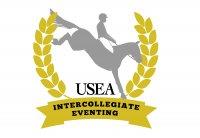It is important to understand the different college riding programs and what they offer. Many colleges offer athletic scholarships to riders regardless of the intercollegiate program they participate in. Club sports tend to be run and funded by the students who pay all associated costs and do the paper work. Check with the college about their policy and any expenses you or they will cover.
Intercollegiate Organizations
National Collegiate Equestrian Association - NCEA (NCAA Emerging Sport)
The National Collegiate Equestrian Association (NCEA), in concert with the mission and vision of the National Collegiate Athletic Association (NCAA), is committed to providing collegiate opportunities for female equestrian student-athletes to compete at the highest level, while embracing equity, diversity and promoting academic and competitive excellence. NCAA Equestrian student-athletes, coaches, and programs adhere to their respective NCAA Division rules and regulations. Currently 25 colleges and universities sponsor equestrian as an NCAA Emerging Sport for Women with more being added each year. More than 1,400 women are listed on NCAA team rosters across the United States. The NCEA is proud to be recognized as a US Equestrian Education Partner.
The NCEA features a head-to-head team competition format in four events: Jumping Seat Equitation on the Flat and Over Fences, Western Horsemanship and Reining. Student-athletes from each team are matched by random draw prior to the meet for each event and have a four minute warm up prior to competition. Horses are designated by event to be ridden by each pair of opposing student-athletes competing head-to-head. The rider receiving the higher score from the judges earns a point for her team. The team with the most combined points from the four events is the winner.
The NCEA National Championship is held in April each year. Qualification for this seeded bracket championship requires participation in a minimum of three NCEA head-to-head meets during the regular season. The NCEA National Champion is determined by competition between the two teams that advanced from the semifinal meets.
The NCEA promotes the advancement of NCAA Equestrian within college athletics. With the uniting of many in the horse industry to support NCAA Equestrian, reaching the required 40 sponsoring schools to advance Equestrian from NCAA Emerging Sport to NCAA Championship sport status is in our future.
For more information, please visit our website collegiateequestrian.com.
USEA Intercollegiate Eventing
In 2014, the United States Eventing Association (USEA) Board of Governors approved the creation of the Intercollegiate Eventing Program as an official program of the USEA. Originally proposed with input from the Intercollegiate Eventing League, the program was established to provide a framework on which eventing teams and individual competition could flourish at universities and colleges across the country. Collegiate athletic programs have been the training grounds for Olympians, amateur athletes and professional athletes for generations. Enabling students to train in the Olympic sport of eventing is a natural addition.
Intercollegiate Team Challenges are quickly becoming popular additions to recognized horse trials in the United States. Teams competing in events identified as Intercollegiate Team Challenges are able to self-identify to the competition organizer, and will compete in the regular horse trial competition as individuals. Combining their individual scores, their team scores will be tabulated and matched against other teams. An inaugural USEA Intercollegiate Championship took place at the Virginia Horse Center in 2016, and remained there through 2018 on Memorial Day weekend. In 2019, the Championship will rotate to Chattahoochee Hills in Fairburn, Ga. one week earlier. The USEA encourages all schools to send as many competitors as possible. The event offers Beginner Novice – Intermediate. There are no qualifications necessary for this championship at this time.
For more information about the USEA Intercollegiate Eventing Program please visit www.useventing.com/membership/intercollegiate.




